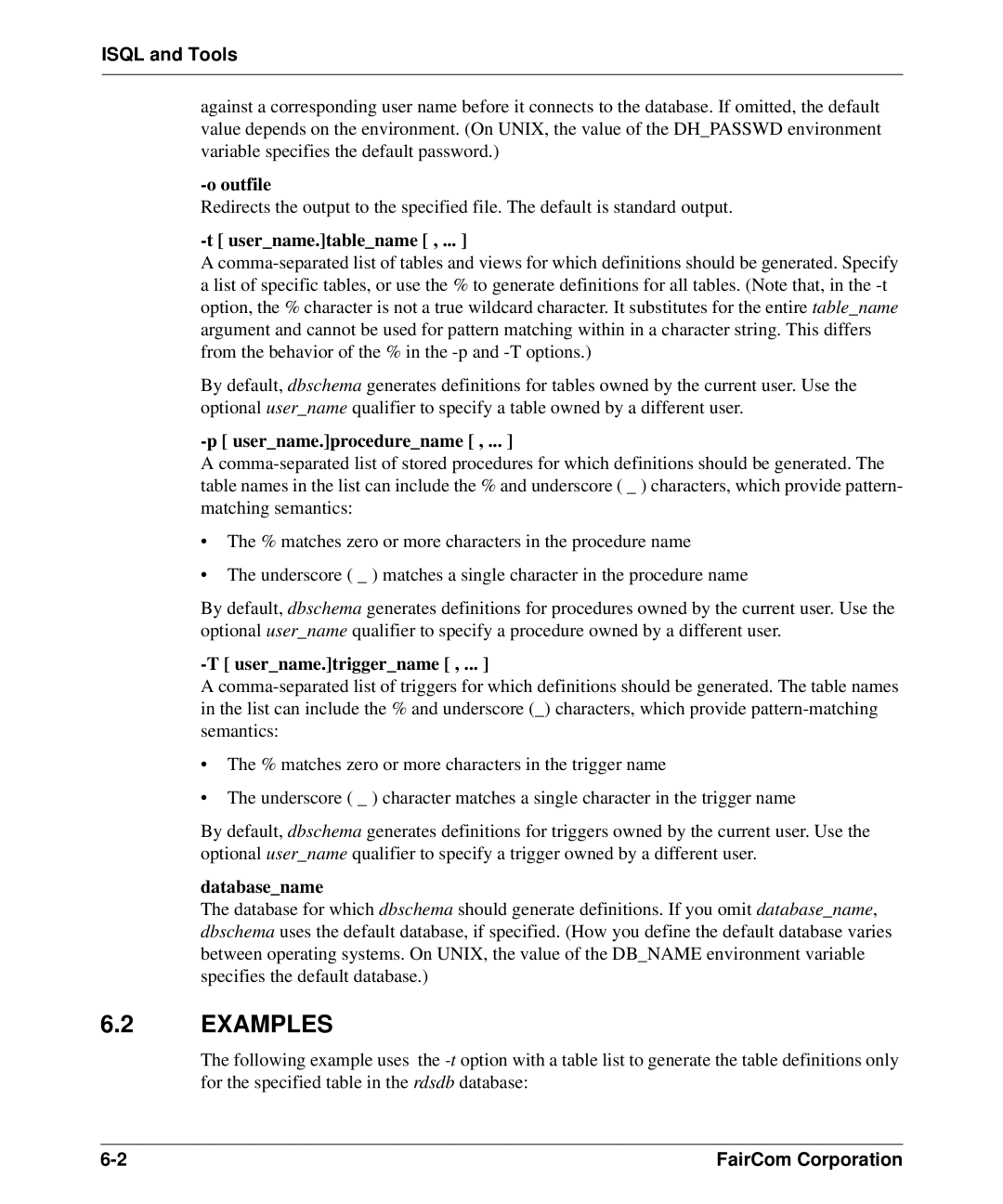
ISQL and Tools
against a corresponding user name before it connects to the database. If omitted, the default value depends on the environment. (On UNIX, the value of the DH_PASSWD environment variable specifies the default password.)
-o outfile
Redirects the output to the specified file. The default is standard output.
-t [ user_name.]table_name [ , ... ]
A
By default, dbschema generates definitions for tables owned by the current user. Use the optional user_name qualifier to specify a table owned by a different user.
-p [ user_name.]procedure_name [ , ... ]
A
•The % matches zero or more characters in the procedure name
•The underscore ( _ ) matches a single character in the procedure name
By default, dbschema generates definitions for procedures owned by the current user. Use the optional user_name qualifier to specify a procedure owned by a different user.
-T [ user_name.]trigger_name [ , ... ]
A
•The % matches zero or more characters in the trigger name
•The underscore ( _ ) character matches a single character in the trigger name
By default, dbschema generates definitions for triggers owned by the current user. Use the optional user_name qualifier to specify a trigger owned by a different user.
database_name
The database for which dbschema should generate definitions. If you omit database_name, dbschema uses the default database, if specified. (How you define the default database varies between operating systems. On UNIX, the value of the DB_NAME environment variable specifies the default database.)
6.2EXAMPLES
The following example uses the
FairCom Corporation |
